Press release
Millennials generation puts more emphasis on work flexibility and recognition of their work rather than financial rewards
22 Aug, 2013 13:22
1164
Bucharest, 22 August 2013 – Millennials generation (those born between 1980 and 1995) puts more emphasis on work flexibility and recognition of their work rather than financial rewards, shows a recent analysis of PwC, London Business School and the University of South California, based on a survey of over 44,000 PwC participants across the entire network, Millennials and non-Millennials alike.
Millennials require a work/life balance, 71% of Millennial employees say that their work demands interfere with their personal lives.
Furthermore, 64% of Millennials would like to occasionally work from home, and 66% of Millennials would like to shift their work hours. Millennials do not believe that productivity should be measured by the number of hours worked at the office, but by the output of the work performed. They view work as a “thing” and not a “place”. A significant number of the Millennials (15% of male employees and 21% of female employees) say that they would give up some of their pay and slow the pace of promotion in exchange for working fewer hours.
Their flexibility is also shown by their openness to the perspective of an international career: 37% of Millennials would like to take advantage of career opportunities overseas. They say that creating a strong cohesive, team-oriented culture at work and providing opportunities for interesting work—including assignments around the world—are important to their workplace happiness.
Contrary to the wide-held opinion that the Millennials are not so much work committed compared to their older colleagues, the survey actualy reveals that their level of commitment is similar.
“It is vital to understand that, although the reasons for staying or leaving the firm are virtually the same for both Millennials and non-Millennials, their relative importance differs. The Millennials have a greater expectation to be supported and appreciated in return for their contributions, to be part of a cohesive team and to have flexibility in their work and work schedule. On the other hand, the non-Millennial generation places greater importance on pay and development opportunities. Organisations should tailor their talent strategies to address these needs and best position themselves for the future”, states Horaţiu Cocheci, Senior Manager, Human Resources Consulting Leader, PwC Romania.
Organization may want to:
• Create a flexible work culture. Companies may elect to adopt policies that promote greater work/ life balance, such as providing employees greater flexibility in their work location or schedule without having to execute a more formal flexible work arrangement.
• Fully leverage technology. Accelerate the integration of technology into the workplace, enabling workers to harness technology in ways that give them more flexibility and increase efficiency. To Millennials this is an absolute must—they expect to have access to the best tools for collaboration and execution.
• Increase Transparency around compensation, rewards and career decisions. Take the mystery out of compensation decisions, and provide greater transparency to employees regarding their career development. Create a meaningful rewards structure that regularly acknowledges both large and small contributions made by employees.
• Build a sense of community. Emphasize teamwork, appreciation and support from supervisors, and give employees honest, real-time feedback, face-to-face.
• Consider introducing or accelerating a global mobility program. Consider introducing a global mobility program, with either short or long term assignments offered outside of the employee’s home country. Providing these opportunities not only adds to the development of the individual working abroad, but also helps to create a cadre of future leaders with a global mindset.
Notes to Editor
To download the full report, please go to http://www.pwc.com/gx/en/hr-management-services/publications/nextgen-study.jhtml
About PwC
PwC helps organisations and individuals create the value they’re looking for. We’re a network of firms in 158 countries with more than 180,000 people who are committed to delivering quality in assurance, tax and advisory services. Tell us what matters to you and find out more by visiting us at www.pwc.com/ro
PwC refers to the PwC network and/or one or more of its member firms, each of which is a separate legal entity. Please see www.pwc.com/structure for further details.
© 2013 PwC. All rights reserved.
Millennials require a work/life balance, 71% of Millennial employees say that their work demands interfere with their personal lives.
Furthermore, 64% of Millennials would like to occasionally work from home, and 66% of Millennials would like to shift their work hours. Millennials do not believe that productivity should be measured by the number of hours worked at the office, but by the output of the work performed. They view work as a “thing” and not a “place”. A significant number of the Millennials (15% of male employees and 21% of female employees) say that they would give up some of their pay and slow the pace of promotion in exchange for working fewer hours.
Their flexibility is also shown by their openness to the perspective of an international career: 37% of Millennials would like to take advantage of career opportunities overseas. They say that creating a strong cohesive, team-oriented culture at work and providing opportunities for interesting work—including assignments around the world—are important to their workplace happiness.
Contrary to the wide-held opinion that the Millennials are not so much work committed compared to their older colleagues, the survey actualy reveals that their level of commitment is similar.
“It is vital to understand that, although the reasons for staying or leaving the firm are virtually the same for both Millennials and non-Millennials, their relative importance differs. The Millennials have a greater expectation to be supported and appreciated in return for their contributions, to be part of a cohesive team and to have flexibility in their work and work schedule. On the other hand, the non-Millennial generation places greater importance on pay and development opportunities. Organisations should tailor their talent strategies to address these needs and best position themselves for the future”, states Horaţiu Cocheci, Senior Manager, Human Resources Consulting Leader, PwC Romania.
Organization may want to:
• Create a flexible work culture. Companies may elect to adopt policies that promote greater work/ life balance, such as providing employees greater flexibility in their work location or schedule without having to execute a more formal flexible work arrangement.
• Fully leverage technology. Accelerate the integration of technology into the workplace, enabling workers to harness technology in ways that give them more flexibility and increase efficiency. To Millennials this is an absolute must—they expect to have access to the best tools for collaboration and execution.
• Increase Transparency around compensation, rewards and career decisions. Take the mystery out of compensation decisions, and provide greater transparency to employees regarding their career development. Create a meaningful rewards structure that regularly acknowledges both large and small contributions made by employees.
• Build a sense of community. Emphasize teamwork, appreciation and support from supervisors, and give employees honest, real-time feedback, face-to-face.
• Consider introducing or accelerating a global mobility program. Consider introducing a global mobility program, with either short or long term assignments offered outside of the employee’s home country. Providing these opportunities not only adds to the development of the individual working abroad, but also helps to create a cadre of future leaders with a global mindset.
Notes to Editor
To download the full report, please go to http://www.pwc.com/gx/en/hr-management-services/publications/nextgen-study.jhtml
About PwC
PwC helps organisations and individuals create the value they’re looking for. We’re a network of firms in 158 countries with more than 180,000 people who are committed to delivering quality in assurance, tax and advisory services. Tell us what matters to you and find out more by visiting us at www.pwc.com/ro
PwC refers to the PwC network and/or one or more of its member firms, each of which is a separate legal entity. Please see www.pwc.com/structure for further details.
© 2013 PwC. All rights reserved.
Ti-a placut articolul?
Articole asemanatoare
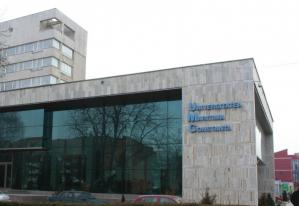
Concurs de angajare la Universitatea Maritimă Constanța. Cine face parte din comisia de examinare
21 Dec 2022 2361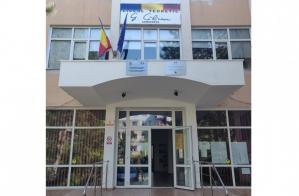
Liceul Teoretic „George Călinescu” organizează sesiunea de examen IELTS Academic în luna mai
12 Apr 2022 1363_thumb2.jpg)
Liceul Teoretic „George Călinescu" din Constanța, premiat cu trofeul Cambridge Assessment English
08 Oct 2021 2089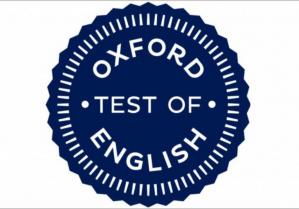
Oxford Test of English – cel mai „smart” mod de certificare a competențelor în limba engleză – acum și la Constanța
02 Apr 2021 2638
Ce rase de câini și-au schimbat forma de-a lungul ultimilor 100 de ani (galerie foto)
07 Aug 2016 7159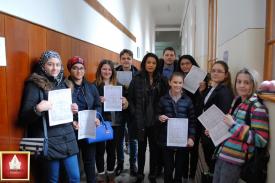
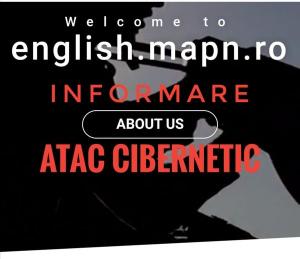


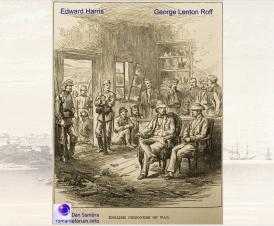
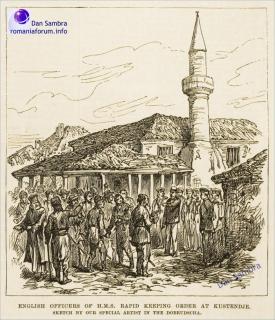
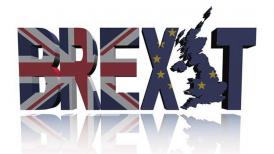

Adauga un comentariu
Nume:
Email:
Comentariu*: